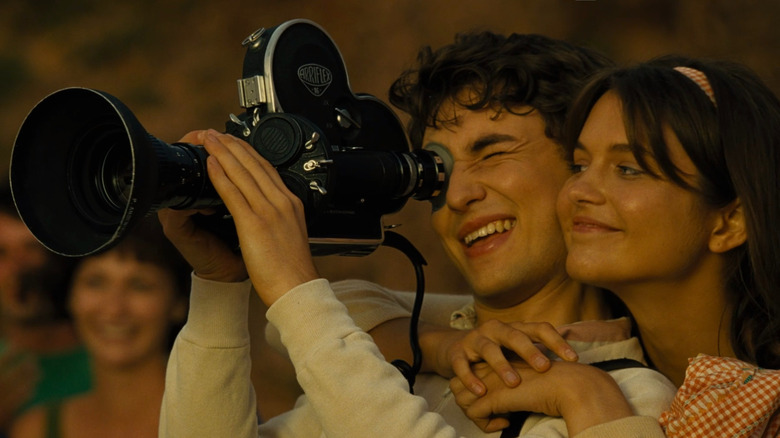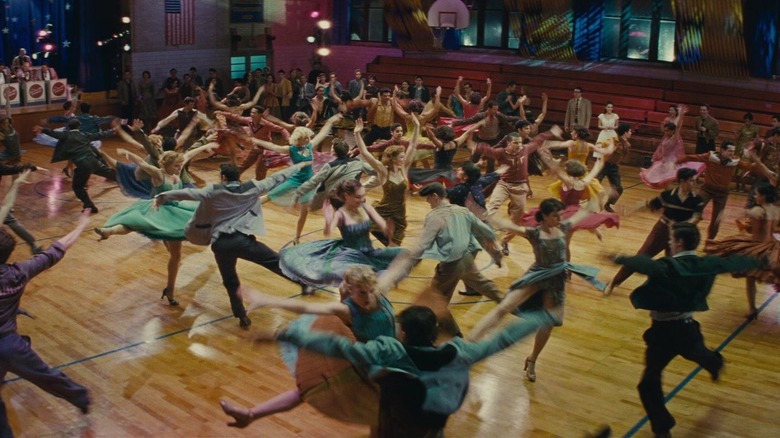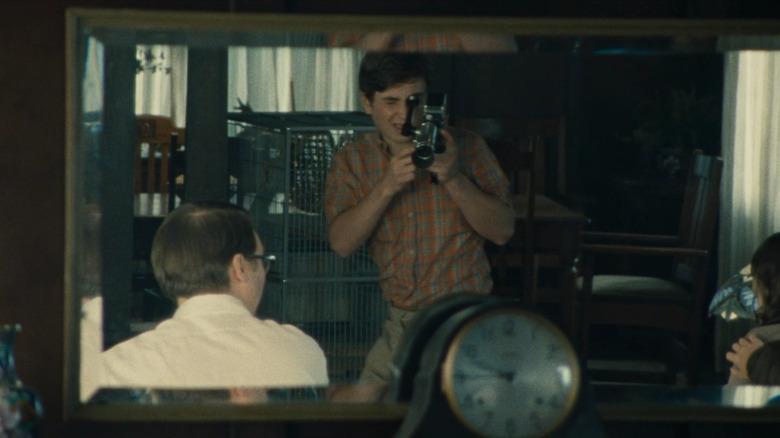What Does Steven Spielberg Have To Do To Win Another Oscar?
For someone who is the most financially successful filmmaker of all time and reshaped Hollywood, Steven Spielberg is weirdly ignored by the Academy Awards. The man has a cavalcade of masterpieces under his belt, yet he has not won a Best Director trophy since 1999 with "Saving Private Ryan" or Best Picture since 1994 with "Schindler's List," which also happens to be the only film of his to have won that award. More time has elapsed between the release of his first theatrical feature film, "The Sugarland Express," and "Schindler's List" than between "Saving Private Ryan" and today, and in those 24 years, Spielberg has yet to display another Oscar on his mantle (or office, or wherever he keeps his awards).
This year could have been the year to rectify that with "The Fabelmans." When his heavily autobiographical film won the Audience Award at this past year's Toronto International Film Festival, we all thought it was finally going to be his time again. Then "Everything Everywhere All at Once" started gaining steam, and the idea that Steven Spielberg was finally going to win his third Best Director Oscar was steadily chipped away at until nothing was left. The man poured his own life and pain on screen for us all to see, and it lost all seven of the categories in which it was nominated.
Since winning Best Director for "Saving Private Ryan," Spielberg has been nominated for and lost 13 Oscars as a director, producer, and writer, and I would argue he should have also been recognized for films that didn't get him nominated, like "Catch Me If You Can" and "A.I. Artificial Intelligence." At this point, I don't know what is finally going to get the Academy to think it's a good time to finally award him again.
He never stopped making masterpieces
After Steven Spielberg finally found his Oscars success in the 1990s, there was an unquestionable shift in the kinds of films he made. He was less interested in making fun thrill rides like "Jurassic Park" or blatantly pulling heartstrings as he did in "E.T. the Extra-Terrestrial." His works became darker, more melancholic, and looked to grapple with some difficult moments in history. Because he mostly shifted away from the work he made his name on and that helped inform the cinematic tastes of so many people, I think people started taking his work for granted because it was different from that early work; when he tried to recapture that spirit, like in "Indiana Jones and the Kingdom of the Crystal Skull," that was when he fell on his face.
But just because the tones and subject matters were different doesn't mean the quality of his work decreased in the slightest. I'd even argue that Spielberg in the 21st century may be even better than in the 20th. From the existential sadness of "A.I." to the boldly politically complicated "Munich" to what should be the new biopic template in "Lincoln," Spielberg is always finding new ways to push himself as a storyteller and a master of camera blocking. Just a year ago, he was nominated for making what is probably the greatest movie musical of the 21st century in "West Side Story," which had a camera dancing with the performers better than just about movie since Hollywood's golden age. I saw it seven times in the theater.
With each new project, he is pushing himself. He'll make a performance capture film like "The Adventures of Tintin" or journalism drama like "The Post." Resting on his laurels isn't an option for Steven Spielberg.
He is still trying new things
There's a moment in "The Fabelmans" I haven't stopped thinking about. It's the scene where Michelle Williams and Paul Dano as fictionalized versions of Steven Spielberg's parents announcing to their children that they're getting a divorce. While a family breaking apart is obviously an emotionally devastating thing, Spielberg does something in the scene that's completely unexpected and shifts that devastation into a whole new gear. We see Gabriel LaBelle's Sammy imagining himself filming the scene of the divorce in a mirror. Those brief few seconds say so much about how Spielberg is only able to truly process his traumas through the medium of film and sees moments of his own life as movie scenes. That is just an absolute gut punch.
Beyond its immense emotional impact, that kind of abstract flourish is something Spielberg has almost never done in his 50 years of making movies. By and large, he is a very classical filmmaker, and that kind of formalist experimentation shows that he won't ever let himself be placed into a box, even in his mid-70s. He may have the reputation of an old master, but in practice, he is as vital as ever.
I sincerely hope the Academy finds a way to award Steven Spielberg at least once more in his career. If that day does come, I am sure people will see it as a legacy Oscar, acknowledging his extraordinary career. However, the man has never stopped operating at the highest level of his profession, and whatever film it ends up being, I have no doubt he would be a worthy winner removed from the legacy context. After all, he's directed my favorite films of the last two years. It's just up to the Academy to do the right thing.


